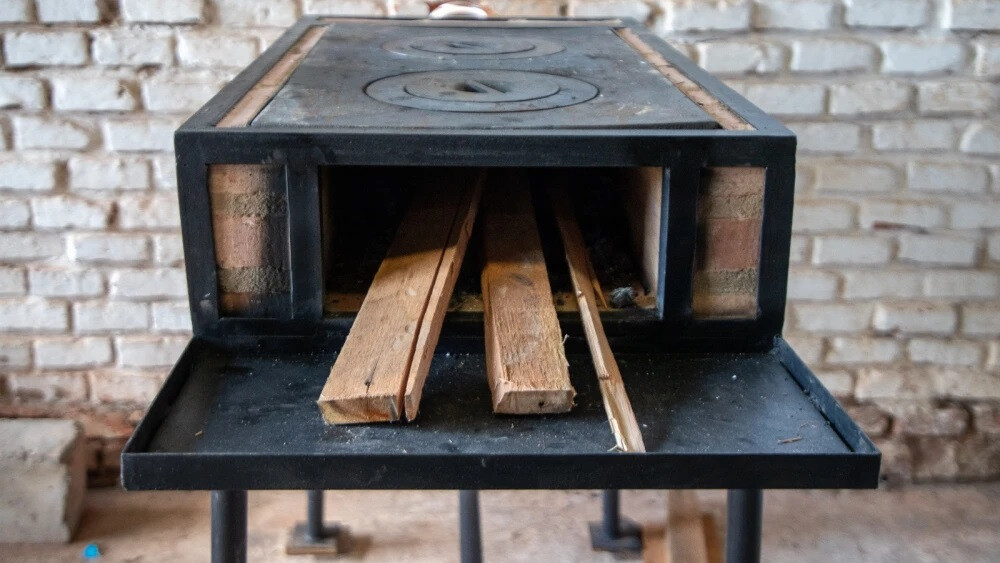
Paraguay's government, with technical support from the Food and Agriculture Organization of the United Nations (FAO), has reached the final technical verification stage for its eco-friendly stove 'El Tata Piriri'. Constructed from refractory materials and cast iron, this stove features a combustion chamber that evenly distributes heat, enabling safer, more hygienic, and efficient cooking.
The project is led by the Vice-Ministry of Mines and Energy (VMME), under the Ministry of Public Works and Communications (MOPC), with the National Institute of Technology, Standardization and Metrology (INTN) verifying compliance with technical standards. It is also being implemented as part of the 'Proeza' project, which receives support from the Inter-American Development Bank (IDB).
El Tata Piriri aims to reduce health risks associated with smoke exposure from firewood use and facilitate the food preparation process by increasing fuel efficiency.
Gustavo Cazal, Director of Alternative Energies at VMME, explained that "the challenge is to gradually transition from using firewood to cleaner methods." He added that "these stoves have undergone years of testing and adjustments."
Lira Giménez, Director of INTN, emphasized that two models have been developed, both featuring optimized chimneys and a more practical and portable structure. She also noted that the sustainability of the design is key to creating a long-term impact.
INTN will prepare a technical report for the standardization of El Tata Piriri stove manufacturing.
In the first phase, these stoves will be installed in six districts in the San Pedro and Canindeyú regions, benefiting indigenous and rural communities. The goal of this initiative is to provide vulnerable households with accessible technology tailored to their needs.
Features and Expected Benefits of El Tata Piriri
El Tata Piriri improves upon the disadvantages of traditional open fires and inefficient wood stoves, offering the following features and expected benefits:
Enhanced Safety: The enclosed combustion chamber and use of refractory materials reduce the risk of fire and burns during cooking.
Improved Hygiene: Prevents combustion residues and ash from directly contacting food, providing a more hygienic cooking environment.
High Fuel Efficiency: The optimized combustion system and heat distribution structure reduce firewood consumption, saving fuel costs and contributing to forest resource protection.
Reduced Smoke Exposure: Efficient chimney design minimizes indoor smoke emissions, helping to prevent respiratory diseases and improve health.
Uniform Heat Distribution: Heat is evenly distributed within the combustion chamber, allowing food to be cooked faster and more uniformly.
Practical Design: The portable and easy-to-install structure enhances user convenience.
Energy Poverty and Environmental Issues in Paraguay
A significant portion of Paraguay's population resides in rural areas, where reliance on traditional fuels such as firewood remains high. The use of these fuels causes indoor air pollution, a major cause of respiratory diseases, particularly affecting women and children. Furthermore, indiscriminate logging leads to deforestation and soil erosion, contributing to environmental problems.
The El Tata Piriri project is part of the Paraguayan government's efforts to address these energy poverty issues and ensure environmental sustainability. By disseminating clean and efficient cooking technology, it is expected to improve the quality of life for vulnerable populations and contribute to environmental protection in the long term.
Future Plans and Outlook
Once INTN's technical report is completed, the standardization of El Tata Piriri manufacturing will be carried out. Following this, the distribution range will be gradually expanded based on the results of the first phase in the initial six districts. The Paraguayan government aims to achieve the dual goals of building a sustainable energy system and improving the welfare of vulnerable populations through the El Tata Piriri project.
The successful dissemination of El Tata Piriri is expected to have a positive impact not only on Paraguay but also on other developing countries facing similar challenges. Safe and efficient cooking technology can play a crucial role in eradicating energy poverty and solving environmental problems.
[Copyright (c) Global Economic Times. All Rights Reserved.]




























